|
|
Post by Entendance on Nov 7, 2016 19:17:34 GMT -5
  

"Some basic rules of history;
***The majority always provides consent to the minority.
The minority always determines the direction the majority follows (agenda)
The majority always pays the price
The majority owns the outcome, good or bad.
By providing consent, the majority are always responsible for their own fate."
-Warren Pollock .png)
Government is the device by which the few control the many. -Darryl R. Schoon
Remember: If you are not a part of the solution, you are a part of the problem ***Cognitive Dissonance Confirmation Bias Economics & Politics***
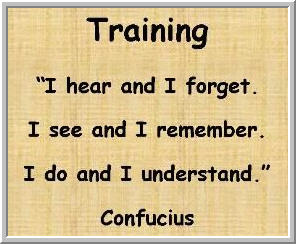
("More people would learn from their mistakes if they weren't so busy denying them." - Harold J. Smith)
Fred & Entendance Beach? Hic Sunt Leones!

Hic Sunt Leones in Latin, meaning "Here there are lions" was written on uncharted territories of old maps. The objective was to dissuade eager adventurers from exploring the uncharted land and claiming it as their own. For the few smart adventurers out there, "Hic Sunt Leones" truly meant, "Here lies uncharted territory -- explore it vigorously and conquer!" And so we do here: The Pursuit Of Excellence
Behold, I send you out as sheep in the midst of wolves. Therefore be wise as serpents, and harmless as doves. -Matthew 10:16
 The 48 Laws of Power The 48 Laws of Power
Law 1: Never Outshine The Master Law 2: Never put too Much Trust in Friends, Learn how to use Enemies Law 3: Conceal Your Intentions Law 4: Always Say Less than Necessary Law 5: So Much Depends on Reputation – Guard it with your Life Law 6: Court Attention at all Cost Law 7: Get Others to Do the Work for You Law 8: Make Other People Come To You Use Bait If Necessary Law 9: Win Through Your Actions - Never Through Argument Law 10: INFECTION. AVOID THE UNHAPPY AND UNLUCKY Law 11: Learn To Keep People Dependent on You Law 12: Use Selective Honesty and Generosity to Disarm Your Victim Law 13: When Asking for Help Appeal to People's Self-Interest Never To Their Mercy or Gratitude Law 14: Pose as a Friend, Work as a Spy Law 15: Crush Your Enemy Totally Law 16: Use Absence to Increase Respect and Honor Law 17: Keep Others in Suspended Terror: Cultivate an Air of Unpredictability Law 18: Do Not Build Fortresses to Protect Yourself – Isolation is Dangerous Law 19: Know Who You’re Dealing with – Do Not Offend the Wrong Person Law 20: Do Not Commit to Anyone Law 21: Play a Sucker to Catch a Sucker, Seem Dumber than your Mark Law 22: Use the Surrender Tactic: Transform Weakness into Power Law 23: Concentrate Your Forces Law 24: Play the Perfect Courtier Law 25: Recreate Yourself Law 26: Keep Your Hands Clean Law 27: Play on People’s Need to Believe to Create a Cult like Following Law 28: Enter Action with Boldness Law 29: Plan all the way to the EndLaw 30: Make Your Accomplishments Seem Effortless Law 30: Make Your Accomplishments Seem Effortless Law 31: Control the Options – Get others to Play with the Cards you Deal Law 32: Play to People’s Fantasies Law 33: Discover Each Man’s Thumbscrew Law 34: Be Royal in Your Own Fashion – Act Like a King to be treated like one Law 35: Master the Art of Timing Law 36: Disdain things you cannot have, Ignoring them is the best revenge Law 37: Create Compelling Spectacles Law 38: Think as you like, but behave like others Law 39: Stir Up Waters to Catch Fish Law 40: Despise the Free Lunch Law 41: Avoid Stepping into a Great Man’s Shoes Law 42: Strike the Shepherd and the Sheep Will Scatter Law 43: Work on the Heart and Mind of Others Law 44: Disarm and Infuriate with the Mirror Effect Law 45: Preach the Need for Change But Never Reform Too Much at Once Law 46: Never Appear Too Perfect Law 47: Do Not go Past The Mark You Aimed For, In Victory Learn When To Stop Law 48: Assume Formlessness
For eighteen years, Bruce Bueno de Mesquita and Alastair Smith have been part of a team revolutionizing the study of politics by turning conventional wisdom on its head. They start from a single assertion: Leaders do whatever keeps them in power. They don’t care about the “national interest”—or even their subjects—unless they have to.
Sun Tzu At Fred & EntendanceInvestors Beach: here Heraclitus & Politics At Fred & EntendanceInvestors Beach: here
|
|
|
|
Post by Entendance on Nov 10, 2016 19:15:24 GMT -5
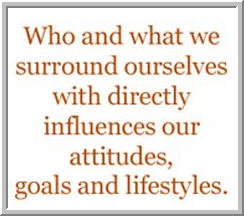
Pursuing Excellence is a State of Mind ***What it Means to Live in Pursuit of Excellence
"To live a life in pursuit of excellence means having an insatiable hunger to:
•Make a positive difference in people’s lives.
•Pursue your own path, dreams and deepest passions.
•Share your expertise and enthusiasm willingly with the world.
•Do things better than you initially expected; better than other people would do in the same situation.
•Leave a lasting legacy behind that impacts the world in a positive way. How do you want to be remembered?
•Work not only harder but also make an effort to work smarter each and every day..."
Bene agendo nunquam defessus: The Rationale Behind Men and Women for Others
Bible Verses about Excellence - Then this Daniel became distinguished above all the other presidents and satraps, because an excellent spirit was in him. And the king planned to set him over the whole kingdom. -Daniel 6:3
- Finally, brothers, whatever is true, whatever is honorable, whatever is just, whatever is pure, whatever is lovely, whatever is commendable, if there is any excellence, if there is anything worthy of praise, think about these things. -Philippians 4:8
- Whatever you do, work heartily, as for the Lord and not for men, -Colossians 3:23
- And it is my prayer that your love may abound more and more, with knowledge and all discernment, so that you may approve what is excellent, and so be pure and blameless for the day of Christ. -Philippians 1:9-10
- Show yourself in all respects to be a model of good works, and in your teaching show integrity, dignity. -Titus 2:7
But as you excel in everything,in faith, in speech, in knowledge, in all earnestness, and in our love for you, see that you excel in this act of grace also.
-2 Corinthians 8:7 - Because an excellent spirit, knowledge, and understanding to interpret dreams, explain riddles, and solve problems were found in this Daniel, whom the king named Belteshazzar. Now let Daniel be called, and he will show the interpretation.” -Daniel 5:12
- His divine power has granted to us all things that pertain to life and godliness, through the knowledge of him who called us to his own glory and excellence, by which he has granted to us his precious and very great promises, so that through them you may become partakers of the divine nature, having escaped from the corruption that is in the world because of sinful desire. -2 Peter 1:3-4
- Rendering service with a good will as to the Lord and not to man, knowing that whatever good anyone does, this he will receive back from the Lord, whether he is a slave or free. -Ephesians 6:7-8
- Do you see a man skillful in his work? He will stand before kings; he will not stand before obscure men. -Proverbs 22:29
- But you are a chosen race, a royal priesthood, a holy nation, a people for his own possession, that you may proclaim the excellencies of him who called you out of darkness into his marvelous light. -1 Peter 2:9
- This Book of the Law shall not depart from your mouth, but you shall meditate on it day and night, so that you may be careful to do according to all that is written in it. For then you will make your way prosperous, and then you will have good success. -Joshua 1:8
- I have more understanding than all my teachers, for your testimonies are my meditation. -Psalm 119:99
- All Scripture is breathed out by God and profitable for teaching, for reproof, for correction, and for training in righteousness, -2 Timothy 3:16
- Whoever restrains his words has knowledge, and he who has a cool spirit is a man of understanding. -Proverbs 17:27
- Count it all joy, my brothers, when you meet trials of various kinds, for you know that the testing of your faith produces steadfastness. And let steadfastness have its full effect, that you may be perfect and complete, lacking in nothing. If any of you lacks wisdom, let him ask God, who gives generously to all without reproach, and it will be given him. -James 1:1-27
- But as for you, O man of God, flee these things. Pursue righteousness, godliness, faith, love, steadfastness, gentleness. -1 Timothy 6:11
- But earnestly desire the higher gifts. And I will show you a still more excellent way. -1 Corinthians 12:31
- Charm is deceitful, and beauty is vain, but a woman who fears the Lord is to be praised. -Proverbs 31:30
- For this very reason, make every effort to supplement your faith with virtue, and virtue with knowledge. -2 Peter 1:5
- The memory of the righteous is a blessing, but the name of the wicked will rot. -Proverbs 10:7
We are hard pressed on every side, but not crushed; perplexed, but not in despair; persecuted, but not abandoned; struck down, but not destroyed. -2 Corinthians 4:8 Do not be overly worried. Always, by prayer and thanksgiving, present your concerns to God's providence. And the peace of the Lord, which surpasses all understanding, will guard your hearts and your minds... Whatever is true, whatever is noble, whatever is right, whatever is pure, whatever is lovely, whatever is admirable, study and learn from such things. Whatever you may have learned or heard from me– put it into practice. And the peace of the Lord will be with you, always. -Phil 4:8-9
Meanwhile... "...The idea that “we can’t be beat”. Arrogance mixed with confirmation bias is a dangerous thing in any type of conflict; physical or otherwise. Just ask General Custer. Things didn’t work out real well for him and for the same reasons... ...It sucks I know, but a lack of imagination on your part does not equal or represent a foul on ours. We did nothing illegal or immoral. We simply beat you because, well, we’re smarter than you are... ...regardless of whoever/whatever you are and regardless of what nation it is you reside in, we, the deplorables, are coming for you." Sorry Snowflake But It’s Not Over…
Generation snowflake: The group of young people today that have the INSANE belief they have the right to NOT be offended by any of the beliefs/viewpoints of the other 7.1 billion people of this planet. When these fragile/infantile people are offended, most likely they will react in someway like a toddler (cry, scream, act hysterical, etc). |
|
|
|
Post by Entendance on Nov 15, 2016 6:34:35 GMT -5
Empathy is a key component of emotional intelligence. It’s a major factor in the quality of your friendships, your work success and your marriage. Most people think empathy is a gut instinct, and you either have it or you don’t.
Ma-Kellams & Lerner, 2016 found that actually, the opposite seems to be true. In a series of studies, they found that systematic thinkers are more accurate at reading other people than intuitive types. In another study they instructed participants to think either intuitively or analytically and compared the results. Once again, analytical, systematic thinking worked best.
The Takeaway: Empathy is an important skill, not a gut instinct. You can build this skill by purposely thinking about how you would feel if you were in another person’s shoes, and analyzing his or her situation.

The ability to empathize with people who disagree with you is one of the most underrated skills. Rather than asking, “Why would someone think that?” you’ll get farther asking, “What have they experienced in life that I haven’t that would cause them to think that?...” ***Overlooked Truths 

Character reflects who we are as people: our deepest values, priorities, and strengths. Talent and skill leads people to do things right. Character is about standing up for and doing the right things.

|
|
|
|
Post by Entendance on Nov 23, 2016 17:27:25 GMT -5
|
|
|
|
Post by Entendance on Nov 27, 2016 6:15:27 GMT -5
|
|
|
|
Post by Entendance on Dec 1, 2016 11:06:42 GMT -5
 
When setting your goals for your practice, make sure you’re pushing yourself just outside your comfort zone. Otherwise all you do is reinforce what you already CAN do instead of pushing yourself into areas that are difficult for you.
At the same time, cultivate an attitude of enthusiasm towards this practice. This is what is going to propel you forward to where you want to be! -Cherry Jeffs
 Your joker is here Your joker is here 
|
|
|
|
Post by Entendance on Dec 10, 2016 8:50:43 GMT -5


Goals and habits are strongly correlated. Everyone has goals that they would like to achieve, but most people put it off for ‘some day’ rather than putting a plan in place. This article will help you to break down your goals so that they are much less overwhelming and more attainable.
What Is a Habit?
Habit Definition: A settled or regular tendency or practice, especially one that is hard to give up.
Habits are something that we do without consciously realizing it. For example, biting our nails, drinking coffee while watching the news, or scratching the same spot even when it doesn’t itch. Habits are something that we once started, and now habitually do on a regular basis.
Breaking the Goal Down
To reach a goal, we must comprise our day of many little habits that lead us to our goal. We need this goal to be
◾Specific
◾Measurable
◾Actionable
◾Realistic
◾Time-based
Otherwise known as a SMART goal. This plan holds us accountable and ensures that it will be harder to give up.
Tell your friends and family when you come up with your goal so you feel more accountable. This will help you to commit to your goal and stay true to it when you are talking to them. Also, do not think about your goal as a fantasy. Think of it as something that is definitely going to happen.
Everyone has goals that they have set for themselves. Whether it is to get better at baseball, lose weight, wake up earlier, or something else, it is accomplishable. The key is to make habits out of tasks that lead to that certain goal.
For instance, let’s say your goal is to be in better shape. To start, you need to make this goal more specific (the first rule of a SMART goal). Is it that you want to lose weight, gain muscle, or stay toned? Let’s say you want to lose weight.
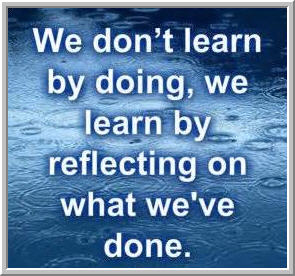
Making a Goal into Habits
To form habits that lead to weight loss, you need to think of small things that would lead to you lose weight. Eating healthier, exercising, and drinking water are all things that lead to success when losing weight. So let’s break those into actionable and measurable steps that can become habits.
For instance, drinking water. You could buy a water bottle that holds 8-ounces and keep a sheet that you check off every time you finish a water bottle. If you are not at 8 before you go to bed, then you have to drink the ones that you did not throughout the day. To make it easier, turn it into a habit by drinking these water bottles after something you do every day. So when you wake up, drink a water bottle. When you’re driving to work, drink a water bottle. One with lunch, dinner, before bed, etc. Make 8 things you do every day become the habitual time to drink a water bottle and before you know it, drinking water will not be a problem for you.
Do the same thing for eating and exercising. Set a time of day that is convenient for you and commit to doing it every day. Exercise every morning right when you wake up or every day right after work. Don’t wait until that day to decide what time is convenient. We all know that it never will be convenient. So decide on a time beforehand and commit to it. Plan your meals out in advance and pre-make them. Don’t let yourself think about what you are craving when you get hungry. Just know that you will be eating the meal in the fridge. Eliminating options reduces the amount of work you have to put into achieving your goals.
Don’t plan a time for your goal to end, but rather plan a time that you will reach each milestone. Say that by Friday you want to have lost a pound instead of saying, “I’ll be done when I lose 20 pounds.” The smaller goals that lead to your big goal will seem more achievable.
The Breaking Point
When you feel like giving up, notice what is making you feel that way. If it is that you are tired, plan a 20-minute nap and then turn on some music for five minutes when you wake up to get motivated. If it is that you don’t want to drive to the gym, play your favorite songs in the car and have some pre-workout. Whatever it is that makes the situation seem less dreadful, do it! But stick to your plan.
When you start to notice that your tasks are becoming habits, add another task into the mix. You will slowly notice that your life is getting better right before your eyes. Unfortunately, habits take a while to form, but they are worth the work in the long run. By forcing one small change in your day, it could change the rest of your life.
Breaking Old Habits
Now that you know how to form habits, you can use the same philosophy to change your bad habits. If you tend to eat a container of ice cream every time you have a bad day, change it to talking a walk instead. This will eventually give you the same rewarding feeling that the ice cream did, but it will have a positive effect on your day. -Madison Ferry

|
|
|
|
Post by Entendance on Dec 23, 2016 11:12:09 GMT -5


We change through challenges. If we're not challenged, we're static. Challenges push us past our perceived boundaries. The mastery of challenges builds confidence.
What challenges are you tackling today and this week?
What challenges are you tackling today and this week in your personal life?
How are you going to ensure that you're getting better from week to week?
It's not enough to set goals. We have to embrace and pursue challenges to continuously move ourselves forward.
What challenges are you tackling today? 


"If we don't change, we don't grow. If we don't grow, we are not really living. Growth demands a temporary surrender of security." – Gail Sheehy

"You have to decide whether to look like an idiot before *the crash or an idiot after it." -John Hussman
(*crash as anything unexpected by a majority of people)

I love the idea of success as peace of mind. It's being able to look yourself in the mirror and know that you've done the best you can, that you're not perfect, but that you're continually learning and improving. -Brett Steenbarger, Ph.D.
|
|
|
|
Post by Entendance on Dec 26, 2016 5:34:33 GMT -5
|
|
|
|
Post by Entendance on Jan 1, 2017 2:36:37 GMT -5
  ***Challenge your status quo *** ***Challenge your status quo ***
More HERE

"We are afraid to fail… And that is the very reason we do fail." ***Make 2017 A Year of Failure
***3 Traits That Make You Resilient to Failure

!! !! !! Saarinen realized that the effectiveness of a design hinges not just on its individual attributes, but also on the context in which it appears. We are drawn to many of Frank Lloyd Wright's structures, such as Fallingwater, because they harmonize with their natural environments. Similarly, we furnish quite differently a home in a modernist design and one that is an American colonial.
 Context matters in terms of behavior as well. How we behave at a funeral will be different than at a party. How we speak with a child differs from our speech with a group of adults. The same words can be interpreted differently depending upon the situation: texts derive meaning within contexts. Context matters in terms of behavior as well. How we behave at a funeral will be different than at a party. How we speak with a child differs from our speech with a group of adults. The same words can be interpreted differently depending upon the situation: texts derive meaning within contexts.
"...Mental health is easy to take for granted. It’s not like a broken arm or a heart attack. There’s nothing visible to alert you that your mental health is suffering. Of course, there are signs, but you have to be paying attention. In fact, often people don’t recognize their mental health problems until they manifest as physical symptoms. Common mental health problems such as depression, anxiety, and stress often show up as physical health problems, including headaches, fatigue, muscle tension, stomach aches, heart burn, heart palpitations, changes in appetite, or trouble sleeping.
Often we try to deny our emotions and mental health problems. Unfortunately, there’s still a stigma that makes it hard for many of us to acknowledge and seek help for these issues. Sometimes we have a hard time accepting our own emotional pain, fearing it’s a weakness, and instead we push it down, drown it in food, drink, or other compulsions..." ***Practice preventive mental health care
|
|
|
|
Post by Entendance on Jan 9, 2017 4:23:46 GMT -5
  Brett S.: the best antidote to fear is realism. Brett S.: the best antidote to fear is realism.


 

 My favourite fruit***Passion fruit nutrition facts My favourite fruit***Passion fruit nutrition facts

•Is there such a thing as bad mood foods? Yes, the foods you eat affect the chemicals in your brain and your blood sugar, which all affect your mood.
•Mood swings, headaches and sugar lows can all be side effects from the foods we eat.
•Avoiding alcohol, foods with added sugars or other ingredients and sticking to whole foods as much as possible helps balance your mood and keep you stable.
•There’s always a delicious alternative! More here


We have all bottled up many small problems and caused one explosive argument some time in our lives. What we don’t realize is that the person on the other side of that explosion might not even have a chance to understand the real reason we are mad.
Arguments are a completely normal and necessary activity. For them to be effective we need to understand some key components. To help you improve on expressing your problems, here are some tips.
What You’re Doing Wrong in Arguments
Placing blame
People do not like to be attacked. So rather than saying, “You were late and you made me wait”. Say, “I was hoping you were ok. I got worried when you didn’t show up at the specified time”. This feels less like an attack and you still got the chance to bring up what bothered you.
Interrupting
Let the other person finish their point before replying. If you are constantly listening just to respond, the argument will go around in circles. But if you are truly listening to what they have to say, you may gain insight on why it happened. Plus, you will want them to listen when it is your turn.
Picking out small issues
If there is a problem that is affecting your daily life and you want to talk about it, bring it up. The saying, “pick your battles” is not far off. Not everything can be the way you would like it to be. So if it is a small issue that doesn’t happen often or you can live with, let it go. This will make your big issues seem more reasonable.
Bringing up the past
Don’t work through something and then bring it up again every time you have an argument. It will make the other person feel like their changes do not make a difference. Make sure each problem is resolved before you leave an argument. Then you won’t be inclined to bring it up again later.
Yelling
Raising your voice may make you feel better, but it does not reinforce the point you are trying to make. If anything, it makes the other person shut down and they may not hear your point at all. Use a normal talking voice and avoid name calling. This is the most respectful and effective way to explain your thoughts.
Assuming or evaluating
If someone acts a certain way and you assume the meaning, you may guess wrong. Ask them what they meant by their statement before you react. When they do tell you, think of it from their point of view before taking it personally. Then address the issue after you have taken a minute to think it through.
What Can You Do to Be Better at Arguing
Take your time
There is no reason to just blurt out thoughts. Take a few breaths and think before you say your next statement in an argument.
Only use facts
Only use the exact facts to prove your point and then let them come to the conclusion. You will water down your statement adding in your feelings or your perception of the situation.
Don’t generalize
Saying “you always” or “you never” can be really frustrating to somebody that is being accused. Maybe they have done it once or twice but chances are it is not every single time.
No name calling
There is nothing worse then being compared to someone that is despised by others. Most likely you will regret saying this and the other person will be hurt badly.
Treat others how you want to be treated
This was a lesson from kindergarten and it is still important. Don’t raise your voice at someone and then expect them not to reciprocate.
The key to a good argument is to respect all individuals involved. Practice keeping yourself calm and explaining your thoughts rather than blurting.
-Madison Ferry
|
|
|
|
Post by Entendance on Jan 20, 2017 4:38:36 GMT -5
|
|
|
|
Post by Entendance on Jan 28, 2017 8:14:50 GMT -5

1) Zest - approaching life with a high degree of energy and enthusiasm;
2) Grit - persistence in the face of challenge
3) Self Control - displaying unusual discipline and self mastery
4) Social Intelligence - displaying particular sensitivity to the needs and feelings of self and others
5) Gratitude - being thankful for what you have
6) Love - being close to others
7) Hope - having optimism about the future and working toward it
8) Humor - being able to laugh and enjoy oneself
9) Creativity - generating new and valuable ways to think about and do things
10) Curiosity - being interested in something for its own sake and delving into it
11) Open Mindedness - approaching experience in an accepting way, viewing it from all sides
12) Love of Learning - mastering a new area of knowledge or skill
13) Wisdom - providing deep and valuable perspective to others
14) Bravery - standing up for what is right, willingness to face threats
15) Integrity - speaking up for and acting upon your values
16) Kindness - doing good things for others and caring for them
17) Citizenship - working effectively as part of a team or community
18) Fairness - treating others equally
19) Leadership - providing direction and support for a group to which you belong
20) Forgiveness - accepting the shortcomings of others and forgiving their wrongdoings
21) Modesty - allowing one's actions to speak for themselves without self-aggrandizement
22) Prudence - exercising restraint and discretion about one's choices without taking undue risks
23) Appreciation of Beauty - noticing and valuing beauty and excellence
24) Spirituality - holding and acting upon beliefs about higher purpose and meaning in life
***How to Identify Your Greatest Strengths and Virtues

|
|
|
|
Post by Entendance on Feb 9, 2017 8:20:43 GMT -5
"Courage is abhorred more than admired, because cowardice is far more prevalent. Physical and moral courage require commitment to an objective or principle. Cowards abandon their objectives or principles at the first sign of pressure, resistance, or opprobrium and hate the steadfast, even if they’re ostensibly allied in the same cause..." More here
***How to Focus Better & What’s Really Getting In Your Way

Bullshit Detector! A Guide to Being Less Wrong |
|
|
|
Post by messier94 on Feb 9, 2017 10:18:46 GMT -5
Great post and oh so accurate. So much easier to capitulate rather than stand up for what is right, what you believe in.
|
|
|
|
Post by Entendance on Feb 11, 2017 7:18:40 GMT -5

Our minds should constantly be stimulated and exercised. If they are not, in a crisis you could panic and make rash decisions.
***Psychological Tests & Quizzes*** |
|
|
|
Post by Entendance on Feb 15, 2017 5:52:37 GMT -5
Again on the sheeple attitude
"A good example of how the technosphere controls our tastes is the personal automobile. Many people regard it as a symbol of freedom and see their car as an extension of their personalities. The freedom to be car-free is not generally regarded as important, while the freedoms bestowed by car ownership are rather questionable. It is the freedom to make car payments, pay for repairs, insurance, parking, towing and gasoline. It is the freedom to pay tolls, traffic tickets, title fees and excise taxes. It is the freedom to spend countless hours stuck in traffic jams and to suffer injuries in car accidents. It is the freedom to bring up neurologically damaged children by subjecting them to unsafe carbon monoxide levels (you are encouraged to have a CO detector in your house, but not in your car—because it would be going off all the time). It is the freedom to suffer indignities when pulled over by police, especially if you’ve been drinking. In terms of a harm/benefit analysis, private car ownership makes no sense at all.
It is often argued that a car is a necessity, although the facts tell a different story. Worldwide, there are 1.2 billion vehicles on the road. The population of the planet is over 7 billion. Therefore, there are at least 5.8 billion people alive in the world who don’t own a car. How can something be considered a necessity if 82% of us don’t seem to need it?.." ***You are not in control
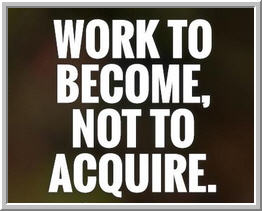
 E, on twitter 
|
|
|
|
Post by Entendance on Mar 8, 2017 9:00:39 GMT -5

"The first step of the long path to healing is recognition...
The influence of these effects lasts long into adulthood - sometimes even into the sixth or seventh decade of life - unless they are addressed through therapy and self-knowledge..."Unloved in Childhood: 10 Common Effects on Your Adult Self |
|
|
|
Post by Entendance on Mar 11, 2017 12:01:53 GMT -5
|
|
|
|
Post by Entendance on Mar 16, 2017 6:55:51 GMT -5
"Chances are excellent that if you haven’t already had a toxic relationship in your life, you will at some point in the future. I’m not saying this to scare you, but only because I want you to be prepared.
How do you know if you’re in a toxic relationship?
5 Signs
◾When you see the person, you come away feeling down on yourself
◾You are plagued by guilt in the relationship
◾The other person is focused mostly on getting his own needs met
◾You often feel manipulated or controlled, one-down, or shamed
◾The other person repeatedly hurts you, and then expects you to act as if nothing happened
Most therapists know how frequently these relationships happen because we see the effects in our offices every day. Typically, it’s the recipients of the toxins who come to us for help. Hurt, confused and lost, they have great difficulty seeing what’s going on. Often, they struggle mightily to make things right in the relationship, all the while unknowingly swallowing noxious doses of “relationship poison” each and every day.
If you grew up with a toxic parent, a toxic sibling or other close family member, you are likely more vulnerable to toxic relationships as an adult. If you grew up with your feelings and emotional needs inadequately met, (Childhood Emotional Neglect, or CEN), you probably developed the belief that your feelings and needs don’t matter. Unfortunately, this also makes you more prone to end up in a toxic relationship.
Those who deliver the toxins? Well, they often don’t realize what’s happening either. Many are simply continuing ways of relating that they learned in their own childhoods, from parents who treated them this way, failed to set the limits they needed, or emotionally poisoned them.

Does this excuse their toxic actions? I’m not saying that, and, no, it doesn’t. In fact, the most common mistake of toxin receivers is having too much compassion for the person who is manipulating or hurting them. Too much compassion makes you overly vulnerable to being hurt and manipulated. But I do think that having some honest understanding of the deliverer of the toxins gives you a better chance of preserving yourself in the relationship.
Having helped many people stop absorbing relationship poison and save themselves, I’ve developed this list of strategies that work. As you read them, think about how you might use them in a toxic relationship you have right now, or one you may have in the future..."
***8 Strategies to Detoxify a Toxic Relationship***
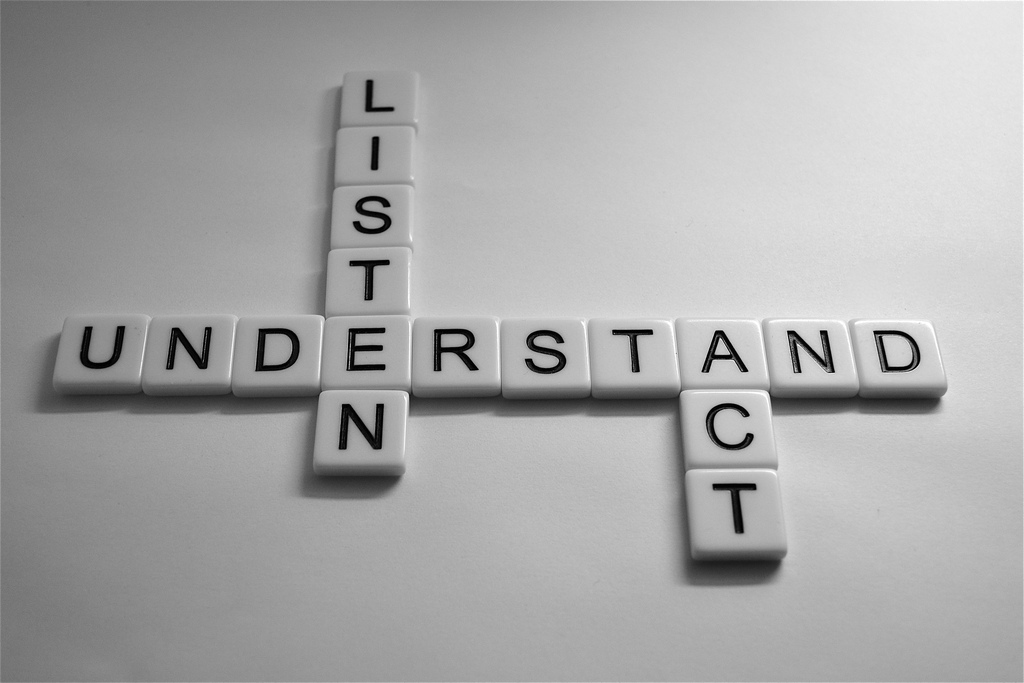
All about***Sociopaths & Psychopaths ***Don't Get Hooked! 
|
|
|
|
Post by Entendance on Mar 23, 2017 18:15:45 GMT -5
"...1) Intermittent reinforcement 2) False Flattery 3) Strings attached 4) Faint praise 5) Lowered expectations 6) Promised protection 7) Faux vulnerability 8) Selective truth Knowing these cons can help you avoid falling for them. Narcissists are unlikely to change. You don’t have to play their game..." ***8 Ways Narcissists Con You

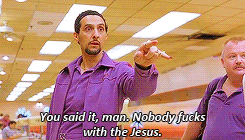
Haters are People Who Hate Themselves ***Managing the Haters*** |
|
|
|
Post by Entendance on Mar 29, 2017 4:07:30 GMT -5
|
|
|
|
Post by Entendance on Apr 3, 2017 4:23:28 GMT -5
 Resilience is the ability to encounter a setback and quickly resume forward movement.
You might take the test***Personal Strengths Inventory***
The qualities of the will are:
1. Energy—Dynamic Power—Intensity
2. Mastery—Control—Discipline
3. Concentration—One-Pointedness—Attention— Focus
4. Determination—Decisiveness—Resoluteness— Promptness
5. Persistence—Endurance—Patience
6. Initiative—Courage—Daring
7. Organization—Integration—Synthesis
***The Act of Will here & here
***10 Times You Need to Be Quiet In Life |
|
|
|
Post by Entendance on Apr 12, 2017 2:13:03 GMT -5
|
|
|
|
Post by Entendance on Apr 19, 2017 7:43:07 GMT -5
***Can A Broken Heart Cause Heart Attack?

“Every narcissist needs a reflecting pool. Just as Narcissus gazed into the pool to admire his beauty, social networking sites, like Facebook, have become our modern-day pool,” (Alloway,2014).
The problem is that this reflecting pool is now getting much larger – and much more accessible. Facebook itself says the average American now spends 40 minutes a day checking a Facebook feed – which is more time than most people spend with their pets (39 minutes on average). While we used to seek companionship in the form of a furry friend, we are now seeking admiration in the form of Facebook friends. And unlike the good feelings that can come from the company of a furry companion, an abundance of likes on Facebook isn’t likely to make us feel much better.
Focusing on ourselves, after all, is a zero sum game. When the idea is to gain admiration, there is not a lot of interaction going on. Instead of focusing on others’ interests, we are updating our profiles, and wondering why they don’t measure up...***Becoming More Narcissistic
|
|
|
|
Post by Entendance on May 15, 2017 11:03:49 GMT -5
|
|
|
|
Post by Entendance on Jun 8, 2017 3:45:14 GMT -5
|
|
|
|
Post by Entendance on Jul 30, 2017 5:42:15 GMT -5
Intermittent Fasting
Cure Procrastination Office Design for Productivity & Creativity Business & Career Advice Productivity Goals & Behavior Design Life and Happiness Meditation and Mindfulness Misc ***The 53 Deepest Dives on How to Succeed at Productivity, Personal Development, Business and Life
The life-force of water can wash away your pain, and the simplest activities can have a healing effect. As you wash your hands, take a shower, or stand in the rain, visualize negative energy flowing from you and being transformed into light.

"Do not fear your enemies. The worst they can do is kill you. Do not fear friends. At worst, they may betray you. Fear those who do not care; they neither kill nor betray, but betrayal and murder exist because of their silent consent." -Bruno Jasienski
Ipocrisia: Simulazione di buoni sentimenti e intenzioni lodevoli allo scopo di ingannare qualcuno.
Contraddizione: Opposizione che di per sé esclude una via di mezzo / Principio di contraddizione, o principio di non contraddizione, principio logico in base al quale è impossibile che la stessa cosa sia e insieme non sia / Contraddizione in termini, contraddizione che si manifesta nelle parole stesse usate enunciando un concetto (ad es. un cerchio quadrato).
Opportunismo: Comportamento consistente nell'agire senza tener conto di principi o ideali, adattandosi alla situazione o alle esigenze del momento in modo da trarne il massimo utile: opportunismo politico.
Smentirsi: Dire cose non conformi a quanto affermato in precedenza; contraddirsi.
Coerenza: Conformità tra principi e comportamento.
Compromesso: Cedimento rispetto ai propri principi.
|
|
|
|
Post by Entendance on Sept 2, 2017 14:47:36 GMT -5
***Why We Avoid Tough Conversations and What We Risk in the Process***
***Here is Why You Should Spend Your Money On Experiences, Not Things
"A reader recently asked the question of how to overcome perfectionism in trading. Like many traders, the reader recognized that the quest for perfection was actually demoralizing him and leading him to trade worse and worse. Trying to buy the bottom tick and sell the top, he was missing trades. Losing money, he became his own worse critic. Even when he made money, he found himself focusing on how he could have made even more by holding a little longer, sizing a little larger, etc. Slowly, perfectionism was stressing him out and interfering with his trading.
Sound familiar? It's a fine line between being success-driven and achievement oriented and being perfectionistic. We want to keep pushing forward, but at some point the push becomes part of a problem, not a solution.
There are two keys to understanding perfectionism:
1) It is a way of talking to ourselves;
2) It is a way of channeling anger and frustration.
The perfectionist is channeling anger inwardly, looking at the gap between the real (actual performance) and ideal (possible performance) and becoming frustrated at that gap. That is why so much perfectionistic thinking is of the "should" variety: you *should* have held the trade longer; you *should* have been sized larger; you *should have taken the trade; you *shouldn't* have taken the trade. It's all frustrated self-talk.
As I discuss in my books, we generally possess enough social sensitivity that we would *never* consider talking to a friend or colleague in the tone we use with perfectionistic self-talk. We would never get in some one else's face and tell them all the things they *should* and *could* have done better. We would recognize right away that there is no constructive value in such talk. It doesn't help anyone move forward.
That is the key point to recognize: there is nothing constructive about perfectionism. It's self-abusive; it doesn't move us forward. It's a dumping of anger, not an effort to learn from mistakes.
Once the trader recognizes that the problem is not their trading, but their way of thinking about their trading, then they can begin the work of recognizing the frustration in real time, interrupting the perfectionistic thoughts, and introduce self-talk that is more similar to talk one would do with valued friends and colleagues.
In practice, the sequence looks like: "OK, I just lost money and I'm feeling frustrated. I can feel myself getting caught up in *should* thinking. That is the same perfectionism that has stressed me out and hurt my decisions. I might have made a mistake, but I don't deserve having anger dumped on me. Before I take my next trade, I'm going to review what might have gone wrong with the last trade and see if I can learn anything from it that will help the next trade. I refuse to keep talking to myself in a harmful way!"
Many times, keeping a cognitive journal is a great way of structuring this process and developing new, constructive habit patterns. The Daily Trading Coach book describes this journaling in detail; see also the reading below. Once we become aware of the *consequences* of negative thought patterns, we can truly *regret* them, and build a determination to not repeat them. It is very healthy to focus on self-improvement: we move ourselves forward when we try to become better. We shut ourselves down when we demand more." -Brett Steenbarger, Ph.D.

***Coping With Grief: How to Handle Your Emotions
|
|
|
|
Post by Entendance on Sept 18, 2017 4:21:14 GMT -5

"One of our great vulnerabilities is that our intentions tend to be mood dependent. When we've just lost money and are in a remorseful state of mind, we vow to correct our errors and stick to our best practices. Then, the remorse gives way to curiosity and excitement and we forget our resolution. We allow our new moods to create different intentions--and different action patterns. True discipline means acting in a consistent manner regardless of mind state. That requires commitment. If we are truly committed to losing weight and getting in shape, we get to the gym no matter what time of day it is or what the weather is like. When we are committed to self-improvement, we don't rest on our laurels when things are going well. As Mike Bellafiore recently pointed out , we use positive performance the same way we use negative performance: as a source of learning and development.
Commitment is something we do, not something we have. The religious person starts each day in prayer; the basketball team meets each day for practice and conditioning; the world-class trader searches for opportunities and re-searches sources of new opportunities. These are routines sustained by a sense of urgency and importance. They are not mood-dependent because the sense of urgency transcends the moods of the moment. I might not feel like going to the gym and eating a healthy meal, but if I know the health of my heart depends on those actions after I've just had a heart attack, my feeling state of the moment becomes irrelevant.
Traders focus on setting goals to further their development, but goals by themselves lack power unless they are backed by urgency and are fueled by commitment. If I deeply love my wife and am filled with gratitude for the many things she has brought to my life, I can be in a funk and yet still want to do things for her and with her. If I urgently desire to win the next game, I'll shrug off my tiredness and push myself and my teammates in practice to take us to the next level. Show me your daily routine, and I'll show you your commitments. If it's in your heart, it will be in your calendar; if it's in your calendar, it will become an intrinsic part of you. Our activities express our character and shape it." -Brett Steenbarger, Ph.D.
|
|



.png)

 The 48 Laws of Power
The 48 Laws of Power





 Your joker is
Your joker is 












 ***
***

 !!
!!
 Brett S.:
Brett S.: 









 ***
***


















 ***
***







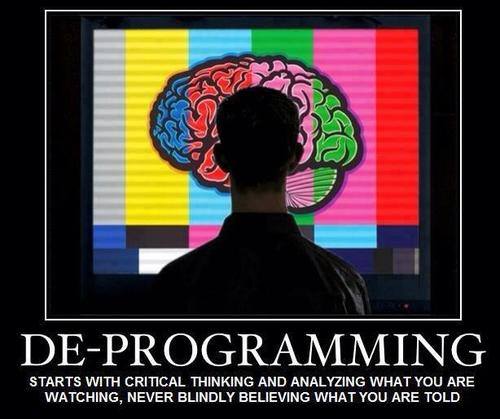

 Cognitive dissonance is a powerful drug:***
Cognitive dissonance is a powerful drug:***